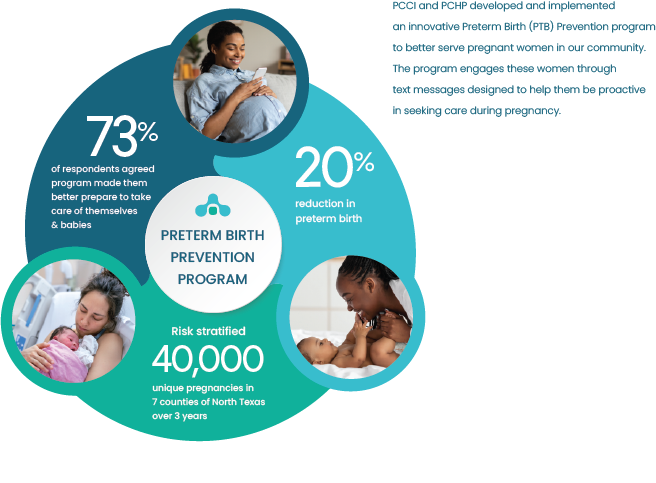Preterm Birth Prevention

Incorporating socioeconomic
context into a risk-based framework
To better serve pregnant women in our community, PCCI and PCHP developed and implemented an innovative Preterm Birth (PTB) Prevention program that uses a machine learning algorithm, healthcare data, and NMDOH to identify pregnant women who are at a higher risk of PTB. The program engages these women through text messages designed to help them be proactive in seeking care during pregnancy. Proactive care is critical because American women are more likely to die from pregnancy-related causes than women in other high-income nations and their own mothers a generation before. In 2019, in Texas, one in nine babies was born preterm. While there are many efforts to address poor maternal health outcomes in the US, most focus on preventing deaths during labor and delivery. Not enough attention is paid to the larger environmental context and non-traditional risk factors, such as educational achievement, body mass index, socioeconomic status, and mental and behavioral factors.
Our model is unique in that we use scalable data sources, such as claims and readily available community-level socioeconomic data, to provide timely and accurate PTB risk prediction among women with no history of PTB, accounting for socioeconomic context. As socioeconomic factors and psychosocial stress are increasingly recognized as important drivers of preterm birth risk, PCCI’s risk-based framework paves the way toward novel approaches to preterm birth prevention, combining clinical and non-traditional PTB interventions addressing NMDOH targeted to specific subgroups of high-risk patients.


